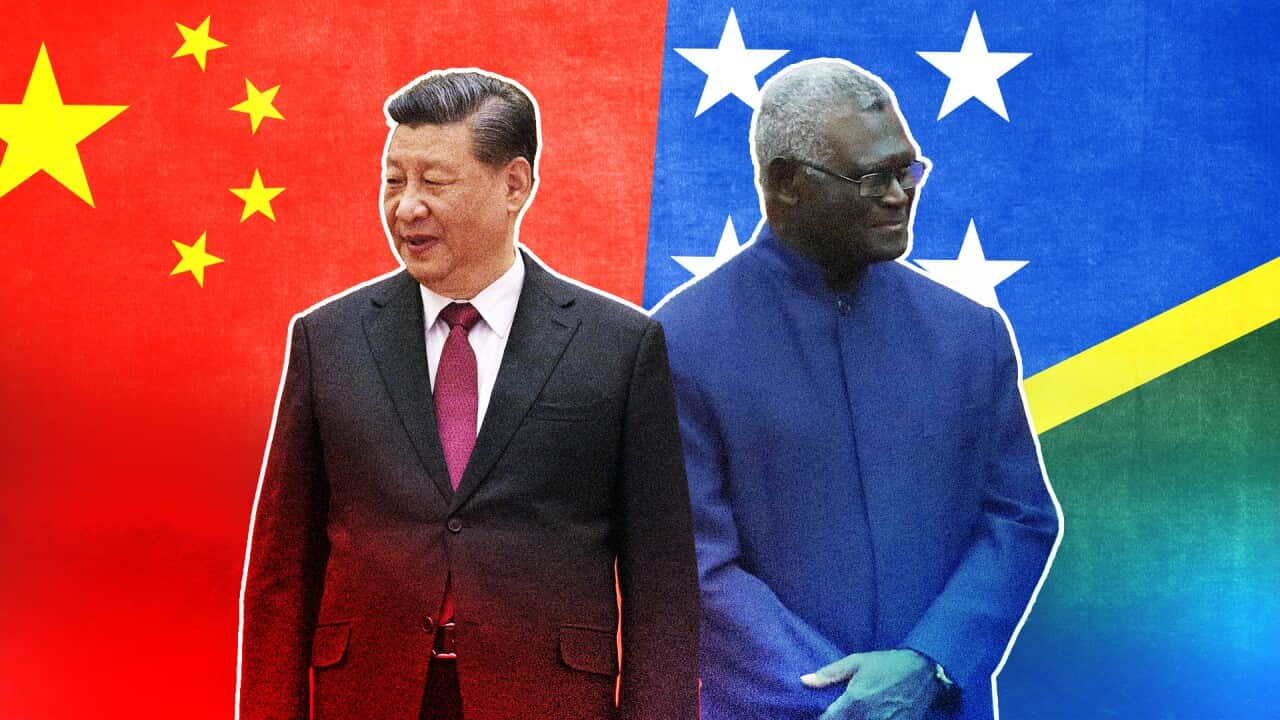A growing number of Chinese-Australians feel like they’re “collateral damage” as relations between China and Australia deteriorate after Solomon Islands' security pact with Beijing, according to some community groups.
Representatives of Australia’s three largest political parties – the Greens’ leader Adam Bandt, Liberal Senator Andrew Bragg and Labor’s legal affairs spokesman Mark Dreyfus – faced an audience of 140 Chinese-Australian community members as part of an election-oriented panel discussion in Sydney.
Topics ranged from policies on climate control to a federal anti-corruption commission, but it was the issue of Chinese-Australians facing discrimination that dominated the evening.
Simon Chan – president of the Chinese Australian Forum, which organised the panel discussion in Chatswood in Sydney’s north – said racism is a growing concern for the community members.
“A lot of Chinese-Australians feel they’re collateral damage as a result of the negativity between Australia and China,” Mr Chan told SBS News.

Greens leader Adam Bandt (from left), Liberal Senator Andrew Bragg and Labor’s legal affairs spokesman Mark Dreyfus participated in the Chinese Australian Forum Federal Election Panel Discussion in Sydney.
While Solomon Islands Prime Minister Manasseh Sogavare and Chinese foreign ministry spokesman Wang Wenbin have denied any intent by China to install a military base in Solomon Islands, in March indicated the deal could allow China to establish a military presence in the South Pacific.
Defence Minister Peter Dutton has repeatedly criticised the pact, describing .
Erin Chew – co-founder of advocacy network Asian Australian Alliance and a former member of the Labor Party – said the antagonistic language used was leading to division in Australia.
“One of the biggest problems is the fragmented relationship between Australia and China,” she told SBS News.
Foreign policy has been a key focus in the three leaders’ debates between Prime Minister Scott Morrison and Labor leader Anthony Albanese ahead of the federal election on 21 May.
In the first debate on 20 April, defending his government’s response to the pact, Mr Morrison asked Mr Albanese,
According to Ms Chew, that is exactly the sort of rhetoric that’s leading to more discrimination against Chinese-Australians.
“Questions like that are very divisive because they give this idea that it’s an ‘us vs them’ mentality. That it’s a ‘Chinese vs Australian’ mentality,” Ms Chew said.
“When you use terms like ‘whose side are you on?’, [which is] quite divisive, as a visible minority, we are more easily targeted for racism and discrimination,” she said.
Ms Chew said she’s encountering more and more instances of racism of late.
“A lot more recently, I have been picking up particularly on Twitter, some of the racist rhetoric coming out of the Australian federal election,” Ms Chew said.
“I have been targeted [with] people calling me a CCP [Chinese Communist Party] spy, questioning my loyalty and telling me that my loyalty should be [to] Australia. And if I don’t like it, I should go back to China,” she said.
Ms Chew is not alone, and she says Chinese-Australian people from all walks of life are experiencing discrimination.
A poster of Gladys Liu — federal Liberal member for Chisholm — was recently vandalised in Melbourne's Mount Waverley.
While Mr Chan said he hadn’t encountered instances of racism directly, he cited .
He said the only way the government can stop this rift from further widening is by referring to the Chinese government and to Chinese-Australians as separate entities.
“If the government has to criticise China, they really need to qualify that by differentiating Chinese-Australians. And make further comments to say that Chinese-Australians have made a huge contribution to Australian society over the years,” he said.
Mr Morrison has made diplomatic relations with Beijing a central plank of the election campaign.
Speaking to reporters in the Chisholm electorate in Victoria on Friday, he said he has “always” acted “very” carefully to make a distinction between the Chinese government and those who hold Chinese heritage in Australia.
“I am always very careful to make this distinction,” he told reporters.
“I talk about the assertive and aggressive nature of the Chinese government – not the Chinese people.
“Chinese-Australians are the greatest patriots you could hope for in this country,” the prime minister said.
Speaking at the panel, Mr Bandt said if the Greens end up holding the balance of power in parliament, they would not only push for an anti-racism strategy but for a multicultural policy, too.
Mr Dreyfus said no one in Australia should have to put up with racism, while Mr Bragg — in a statement to SBS News after the event — said “racism of any form ... is a sickness of the mind and the heart”.
"I have always spoken out against racism, including during the pandemic when Asian-Australians faced a barrage of racism. I will always be a strong public voice against [racism]," he said.











